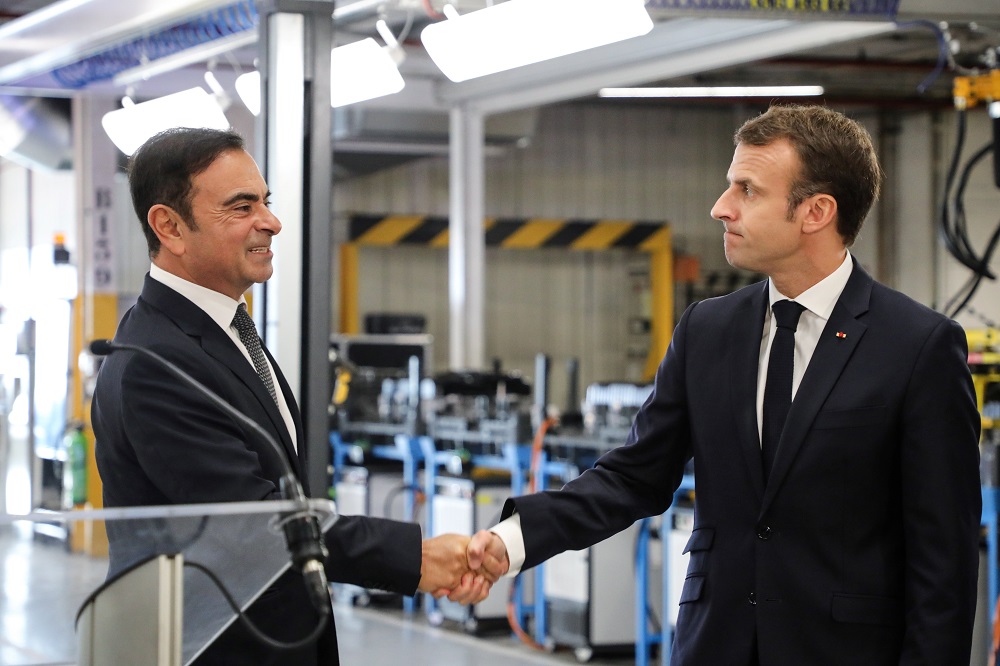
- ARAB NEWS
- 02 Jul 2025

PARIS: Ex-Nissan boss Carlos Ghosn said on Wednesday that a surprise corporate move, orchestrated five years ago by French President Emmanuel Macron who was then economy minister, soured relations between Renault and Nissan and contributed to his ouster.
Ghosn, the former head of the car alliance, said Nissan executives and Japanese officials were shocked by a 2015 decision by the French government to increase its voting rights at Renault.
"This left a big bitterness. Not only with the management of Nissan, but also the government of Japan," Ghosn told reporters, although he did not name Macron. "And this is where the problem started."
Macron's office did not respond to a request for comment for this story.
In April 2015, as a 37-year-old minister with then-unknown presidential ambitions, Macron ordered a rise in the state's stake in Renault designed to secure double voting rights.
The overnight move gave the French state a blocking minority in Renault, which in turn controlled Nissan via its 43.4 percent stake in the Japanese firm.
According to French and Japanese sources, that rattled the Japanese side of the Renault-Nissan alliance, which feared a national champion was falling under the control of the French government.
In the ensuing eight-month boardroom fight between Macron's ministry and Hiroto Saikawa - Nissan's second-in-command at the time - Ghosn sees the seeds of the Franco-Lebanese executive's downfall.
The 65-year-old fled Japan last month as he awaited trial on charges of under-reporting earnings, breach of trust and misappropriation of company funds, all of which he denies.
He is now in Lebanon, where he spoke to international media on Wednesday.
"There started to be some kind of defiance from our Japanese colleagues, not only about the alliance but also about me," Ghosn told a news briefing.
"And some of our Japanese friends thought: the only way to get rid of the influence of Renault on Nissan is to get rid of him," he added. "Unfortunately, they were right."
He said that, partly because of the mistrust caused by the 2015 row, he had doubts about the future of the alliance.
Asked if he felt let down by the French government's muted response to his arrest, Ghosn replied: "How would you have felt in my place? Supported? Defended? Let down? I don't know. I won't state a view for now.
"I am a French citizen like any other. I'm not asking to be treated better than anyone else, but I shouldn't be treated less well than others either.
"When the French president says 'presumed innocent', I believe him. But when French officials say 'presumed innocent' and have a body language that says 'he is guilty', I don't agree with that," Ghosn said.
Reuters